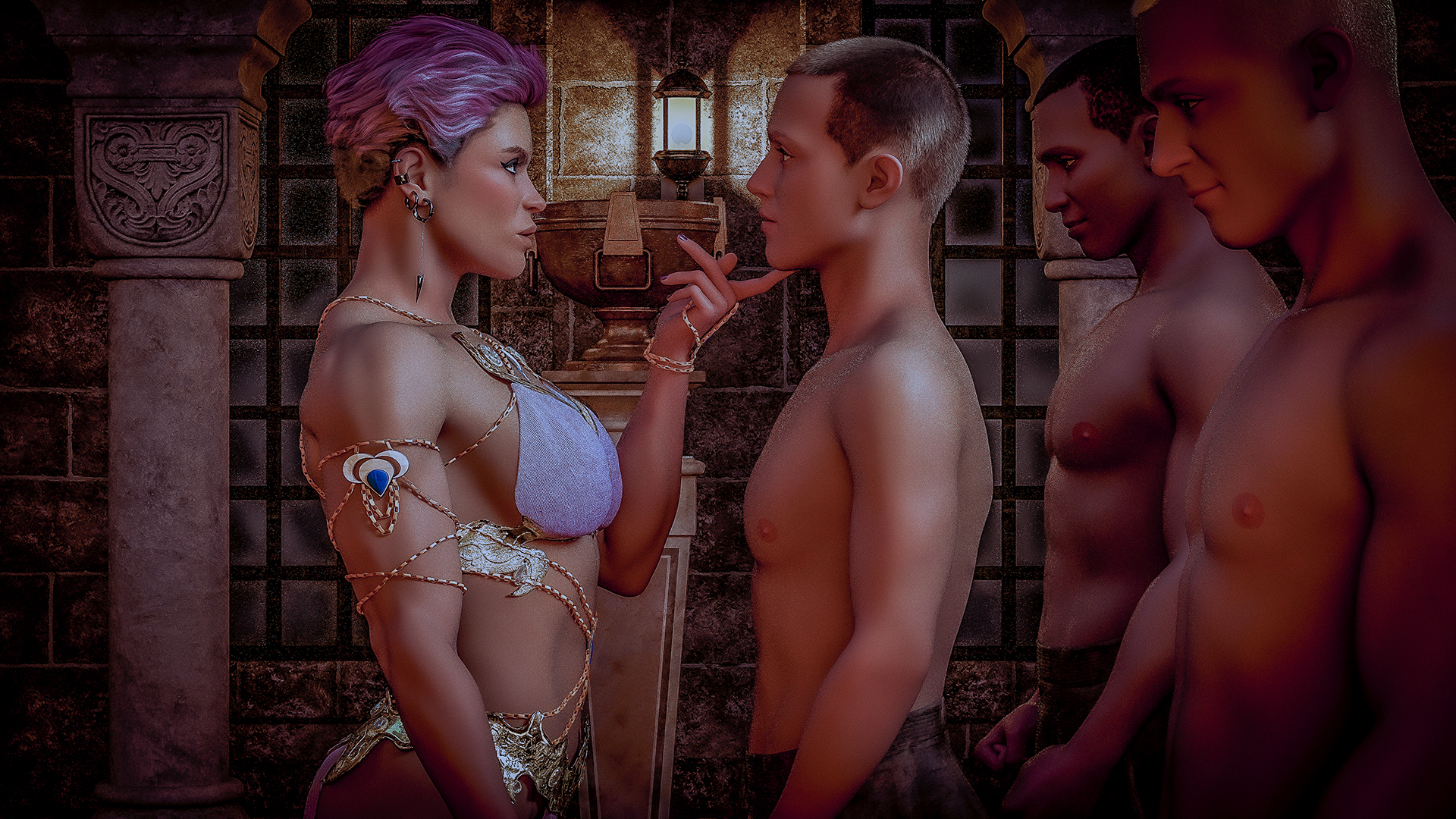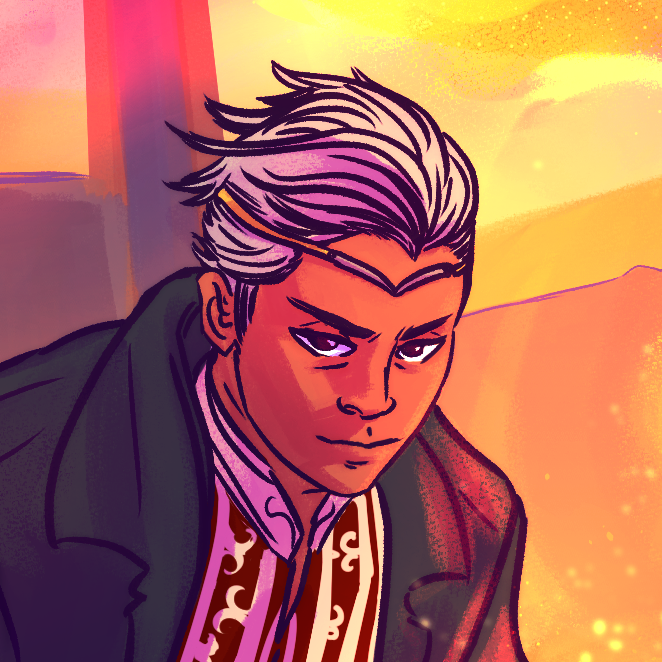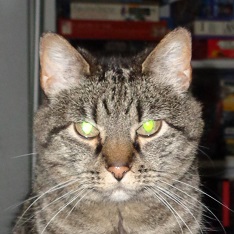Something Between a Conversation and Death
The scavenger sits atop the hill with your sword in his lap. Like a vulture on its perch, he peers down at the bog below. With his eyes squinted and with a scowl on his face, he watches as the mortuary corps pull the last of the bodies out of the muck. Perhaps he is wondering if he should’ve stolen from another corpse instead.
A steady southern wind blows the smoke from your funeral pyre past me and out onto the battlefield. And yet, up on the hill, the scavenger is spared. He doesn’t have to cover his mouth or close his eyes. He doesn’t have to slam shut the door to memory in his mind. He just gets to sit up there with his plunder and wait for someone to pay the ransom.
The wind has spared him, but I will not.
He watches me as I trudge through the fen, as I climb the knoll with murder in my eyes, but the halfling does not move. Not even when I am standing above him with a hand on the hilt of my sword—not even then does he flinch.
He points at the smear of blue paint which runs from my bottom lip and down my chin and he smirks. “You look a little old to be a private,” he says.
“I served my years and got out,” I told him. “I’m not a lifer.”
The halfling nods. “You do look more like a sculptor than a soldier,” he says.
He’s not wrong. I haven’t swung a sword in ages. But I am Bekiskapan and war is in our blood.
“I suppose,” says the halfling, running his hand along the flat of your blade, “that you want this.”
There are so many things I want to say to him that I can’t choose. I want to tell him how ridiculous he looks, holding a sword that’s twice as long as he is tall. I want to tell him that the sword should be burning alongside you, back there in the village square—to remind him of what he should already know, given that his people and ours have been allies since the time of the world before this one. And yet, before I can say anything at all, the halfling gives voice to the thought I have been thinking all day but could never—would never—speak aloud.
He smirks as he says, “You’re not angry that it’s not with her upon the pyre. You’re angry that I took it before you could take it yourself.”
I turn from him, unable to bear the sight of the truth in his eyes. But when I turn, I see the village again. I see column of flame that is delivering you to the ancestors. I see what I have been trying to hard not to see: you are gone.
Then I fall to my knees on the muddy hilltop and I begin to cry.
We first met when you were still a major, not the legendary general would become. You had just finished your first tour of duty, your triad had just built its domus on the outskirts of Nova Meskera, and after nine years of taking life, you were excited to begin making it instead.
Though the other peoples with whom we shared this new world spoke of magics which could fill a woman’s womb without a trip to the barracks, we Bekiskapan were creatures of habit—of tradition. And so, you marched out of the women’s section of the city, passed the villas of those born with balanced scales, and rapped your knuckles upon the barracks door.
When the colonels opened the door, you spoke the traditional greeting and tried not to laugh. “I seek an offering,” you said, your veneer of composure beginning to crack already. “Who amongst you has prepared me a gift?”
And then, from every corner of the building—from every nook and cranny and crevice—came the cry of “I have!”
You stepped into the courtyard, stood beneath the statue of the three-horned goddess, and watched as three dozen men—me among them—descended the steps from our rooms. And then, once we were properly lined up for your inspection—three rows of twelve, with enough space between each row for you to walk amongst us—then the three colonels joined us in the formation, one at the end of each row.
I will never forget the way you looked that night, the sight of your broad shoulders and muscular arms as you walked along each row of men. You searched of someone with whom the mating might be fun and not just a chore, not just something you would laugh about with the other women of your triad later on. The thin chains of gold which encircled your biceps, your abs, your back, and your breasts—I decided that night that they were not just adornments, not just embellishments to call attention to your beauty, but that they were necessities. Only through the wearing of those chains could you restrain the raw animal passion inside of you. And when those chains came off, if they came off, whoever you had chosen to share your bed would need to be ready.
I had no hopes that you would pick me. I was scrawny then, even scrawnier than I am now, and even if you picked a dozen donors to lie with you that night, there was no way I would be among them. All of us—each and every man—had heard the tales of your exploits. We all knew what you were made of, and we all knew the kind of man you would pick. I stood between two of them, in fact: two muscular grunts who might be able to best you in the bedroom, even if they could never hold a candle to you out on the battlefield. I remember thinking to myself that you wouldn’t even give me a passing glance, that I might as well be invisible.
When you came to our row, the thirteen of us ducked our heads as was the custom. I remember watching your bare feet as you walked the line. I remember how you lingered in front of the man to my right, and then how you lingered in front of me. I remember how you lingered and lingered. I remember how I blushed as you said, “Soldier, step forward.”
I did as I was told, but with my gaze still firmly affixed to the dark marble of the floor. I was not to look at you until and unless you lifted my chin. But even when you did, even when you slipped a finger along the underside of my jaw and gave me a gentle nudge, I could not meet your gaze—not at first.
“Soldier,” you said. “Have you read your Pallanterio?”
That is when I looked at you, when I good and truly saw you for the first time. You must remember that this was before your second tour of duty, before you wrote your book and showed us all that you were as much of a philosopher as you were a fighter. At this point, I knew of your strength of body but I knew nothing of your strength of mind.
“Soldier?” you said once more.
“What is life?” I said, quoting.
You smiled and spoke Pallenterio’s answer to that question: “Something between a conversation and death.”
I smiled back, expecting to be thanked and sent back to my place in the line. I was grateful that you had acknowledged the importance of thinkers in our society, a not-quite-popular opinion in those days of war, but I still harbored no delusions that you were going to take me to the mating room.
And yet, instead of thanking me for my answer and my service and then sending me on my way, you asked another question of me. You asked me, “Are you good with your hands?”
The man to my right snickered, but then the man to my left spoke. With his head still lowered out of respect, he told you that I was the best sculptor in the barracks.
And it was then that you laughed and took my hands into your own. “Oh,” you said, “In that case, I believe you are just the man for the job.”
On the hilltop, the halfling rises to his feet and sets a tiny hand upon my shoulder. “There is no shame,” he says, “no shame in holding on.”
“Li idido ni ripi,” I say to him, speaking in the words of his people.
“Yes,” he says. “The past is a gift.”
I turn to face him, still on my knees, and I look him in the eye. “A gift you have a stolen from me,” I say.
The halfling shakes his head and gestures towards your sword, which I see now that he has made sure to lay upon the grass and not the mud. “A gift which I have saved for you,” he says, and he offers me a kind smile.
It is only now that I see that the halfling did what he did to honor the ancient covenant between our two peoples. The only people who ever knew the Bekiskapan as well as we knew ourselves were the halflings, and the only people who knew what the halflings were made of, at their core, were the Bekiskapan. And so, a long time ago, our two peoples promised to look after one another—to save each other from ourselves when necessary. That’s all that the halfling has done, I realize. He’s saved us from ourselves by saving your sword from the fire.
The sword of our greatest hero.
As I rise to my feet to collect your weapon and be on my way, the halfling asks me if it is true, what he’s heard, that you have a daughter.
I nod. It is true. And my heart warms again at the halfling’s grace, at his understanding of our people and our customs. Another man from another place might say that young Aesling was our daughter and not just yours, but that is not our way. All I did was give you the clay. You were the sculptor, the one who shaped my gift to you into something beautiful and strong.
“Will you give her the sword?” asks the halfling.
I nod. “The sword is the farewell,” I tell him. “The end of the conversation,” I say, thinking of the Pallenterio quote that was the start of your conversation with me—the start of the conversation that brought our daughter to life.
Yes, our daughter. I can think it, even if I can’t say it.
I think of her—the child you shipped off to safety before you rode off to war for the second time—and I feel a swell of pride in my chest and a knot of duty in my gut. I think of Aesling waiting for her life to begin—that precious something between our conversation and her death—and I know what the next part of my journey must be. I must find her. I must find the place you’ve hidden her away to keep her safe, and I must give to her the gift the halfling has given me.
I raise my hand in farewell and say to him, “Bütewi mowu.” Walk safe.
He raises his hand in response and says the same. And then, at last, we part ways.










Excellent story! But what was the phrase?
Thanks! Sorry I was too vague. The phrase was the title of the story "Something Between a Conversation and Death."